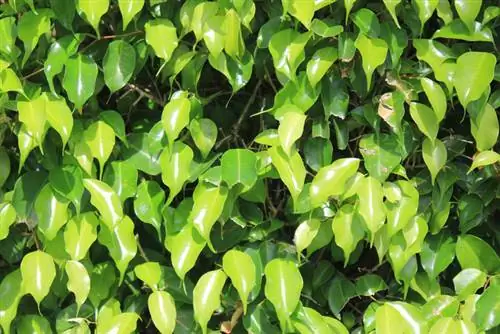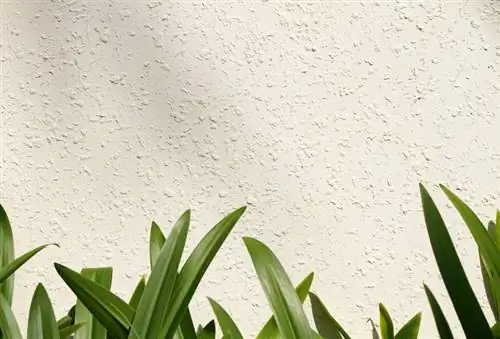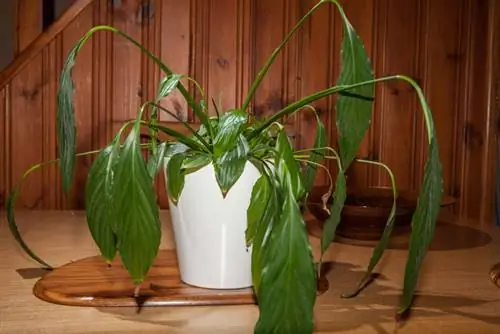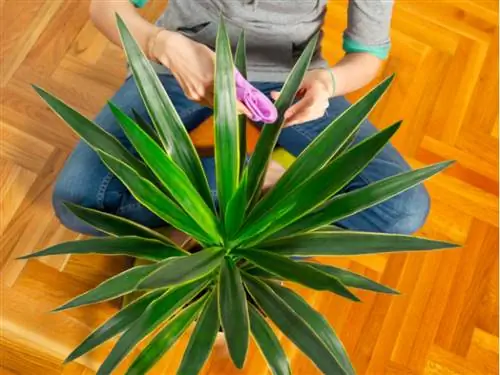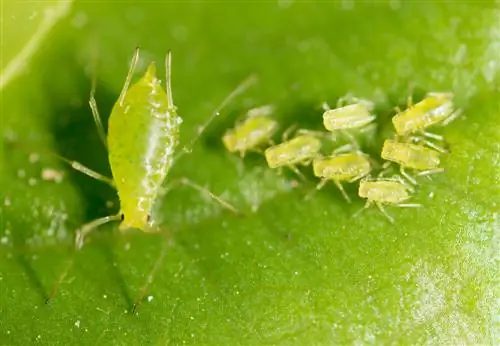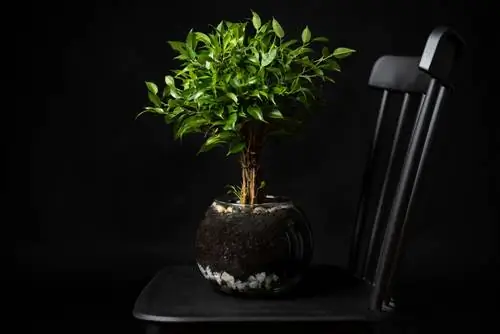- Author admin leonars@hobbygardeners.com.
- Public 2023-12-16 16:46.
- Last modified 2025-01-23 11:21.
Sticky leaves on a birch fig can be more than just an aesthetic problem. Find out the two most common causes of the resinous coating here. How to solve the problem on your Benjamini with home remedies.
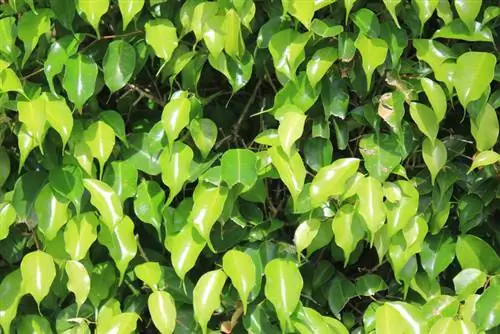
Why does my Ficus Benjamini have sticky leaves?
Sticky leaves on a Ficus Benjamini are usually caused by pests such as lice that secrete honeydew, or by plant sap flowing out after pruning. Thorough cleaning of the leaves and treatment with soft soap solution or diatomaceous earth can solve the problem.
Cause 1: Sticky waste product from pests
Sucking pests remove the sap from your birch fig and excrete sugary honeydew as a waste product. This spreads as a dark, sticky coating on the leaves. Unfortunately, fungal spores use the patina as a breeding ground, so that the pest infestation is followed by an infection with sooty mold fungi. How to fix the problem:
- Moisten a soft cloth with lukewarm, lime-free water
- Wipe off any sticky leaves on the top and bottom surfaces
- Then rinse the birch fig upside down
Experience has shown that the shower does not eliminate all pests. Therefore, treat the affected Benjamini with the classic soft soap solution. This consists of 1 liter of boiled water and a tablespoon each of soft soap and spirit.
Fight scale insects with tougher bandages
As long as the sticky leaves are due to aphids, mealybugs and mealybugs, the soft soap solution proves to be a powerful home remedy. However, if you are dealing with cup or lid scale insects, you need to bring out the stronger guns. Wipe the foliage with an alcohol-soaked cloth. Then dust the birch fig with diatomaceous earth. This natural sediment dust dissolves the shell so that the lice die.
Cause No. 2: Leaking plant sap
If you cut back your birch fig, the milky sap will flow freely. This is not only poisonous, but also sticky. Ideally, you should carry out the pruning in the garden and then rinse the Benjamini thoroughly. Alternatively, prepare small pieces of absorbent kitchen fleece before cutting. Place this immediately on each cut so that it cannot bleed out.
If a few drops fall onto the leaves underneath, wipe them off immediately with lukewarm water.
Tip
If your birch fig is outside in the garden or on the balcony, approaching hordes of ants signal an infestation with lice. Ants are crazy about the sticky honeydew that aphids leave behind. This means you can detect the presence of the tiny pests before sticky leaves form and take appropriate control measures.

